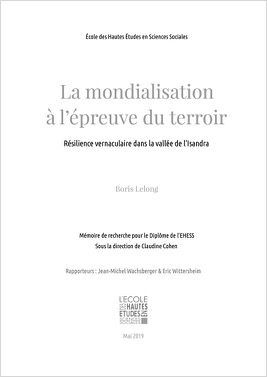ETHNOGRAPHIC FIELDS
MADAGASCAR / 2007-2017
Research on peasant society in the Betsileo region: political autonomy and relations with the state, kinship networks and collective rituals, cultural globalization and vernacular dynamics.
TIBET / 1998-2008
Ethnomusicological research within the Tibetan refugee community in Ladakh. Evolution of musical practices, from rural sociality to the reconstruction of identity in exile.
PHILIPPINES / 1999-2008
Ethnomusicological research among the indigenous Tboli community: music as a means of mediation with the natural environment and as a vehicle for information between humans.
FRANCE / 2005-2007
Ethnomusicological research among retirees in Saint Denis: the evolution of the place of music in society before and after the war, in private and public spaces.
ZAMBIA / 1992-1996
Ethnomusicological research in the Kingdom of Lozi: cultural and historical landscape.
Other ethnomusicological investigations in Lesotho (2003-2006) and Mauritania (1999-2006).
PUBLICATIONS
Matière, énergie, humanité. L'anthropologie contre l'entropie.[Sociétés Plurielles, Jaunary 2026]
Système de parenté et construction de l'État : l’Égypte vue de Madagascar.
[Nehet, Sorbonne-ULB, December 2025]
Femmes, rituels, réseaux. Ethnographie malgache et archéologie génétique.
[Bulletin de la Société Préhistorique Française, June 2025]
Insecurity in the Highlands. Local and state protection in Madagascar.
[Under review]
Parenté, sécurité, politique. Une approche wébérienne.
[Under review]
État-fantôme, État-ancêtre. David Graeber et la souveraineté malgache.
[Under review]
Faire famille, faire nation. De la parenté bilatérale en pays Betsileo.
[PhD dissertation. Université Paris Cité, 2024]
L’utopie du village libre. Paradoxes de l’autonomie paysanne à Madagascar Thesis. EHESS, 2020
La mondialisation à l’épreuve du terroir. Résilience vernaculaire dans la vallée de l’Isandra These. EHESS, 2019
The treasure of our ancestors [Madagascar]
CD. Altamira-Buda, 2016
Songs from exile [Tibet]
CD. Altamira-Buda, 2013
Women artists of Sebu [Philippines]
CD. Altamira-Buda, 2008 - Awarded by the Académie Charles Cros
La mémoire en chantant [France]
CD. Altamira, 2007
ACADEMIC COMMUNICATIONS
Système de parenté et construction de l'Etat : le cas de MadagascarCollège de France / Sorbonne Université, 2023. Colloque "Pouvoir(s) dans les sociétés sans écriture. Continuités et ruptures".
Famille et territoire à Madagascar.
CET, 2023
. Journée d’études.
Un rituel entre les mondes. La procession panamérindienne de Cabeza de Vaca.
EHESS, 2022. Journée d’études des Mondes Américains.
David Graeber et l’énigme de la souveraineté. Étude de cas à MadagascarEHESS - CNRS, 2021. Journée d’études de l'IIAC.
L’ethnomusicologie : une approche spécifique du matériau ethnographiqueEHESS, 2020. Journée d’études du CEMS.
Philippines : Femmes artistes du lac SebuMusée du Quai Branly, 2013
Philippines : Femmes, musique et forêt à MindanaoMusée National des Arts Asiatiques Guimet, 2008
Music, nature and society among the TboliUniversity of the Philippines, 2008
Tibet : Les chants de l’exilMusée National des Arts Asiatiques Guimet, 2003

